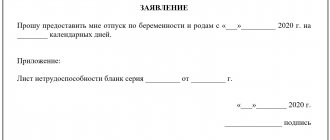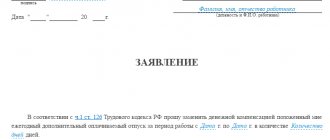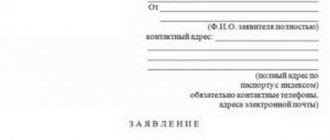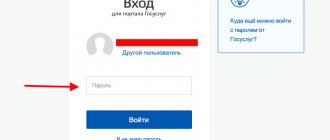Home / Disputes with the bank / Writing an application to court against the bank - sample and further instructions
Litigation with banks is not that uncommon, since a conflict with an organization can bring serious consequences for the consumer. The main reasons for filing a claim are the company’s violation of consumer rights and banking legislation, as well as the terms of the executed loan agreement. Of course, the bank itself can initiate a lawsuit by filing a claim against the loan debtor.
So what should you do if the bank violated your rights when applying for and servicing a loan? Is it possible to challenge a contract by terminating it or changing the terms? We will talk about this in our article, and also give you a detailed action plan on how to file a lawsuit against the bank.
Reasons for claims against the bank
There can be many reasons for filing a petition. For example, if employees of a financial institution, without the knowledge of a citizen, issued a loan for him. Or if contractual requirements were violated. Very often, defaulters themselves begin the process in order to reduce the amount of monthly payments or request a deferment of contributions. They also ask to reduce the amount of accrued penalties and fines.
Loan disputes
Litigation between a borrower and a credit institution is a fairly common occurrence. The grounds for disputes may be as follows:
- Unclosed loan.
- Incorrect calculation of the interest rate, deliberate concealment of its size.
- Intentional imposition of additional services of a banking institution.
- The bank violated the terms of the loan contract.
An additional reason for filing a claim may be concealing the real amount of penalties and fines for late payments. Or if bank employees incorrectly calculated the loan repayment schedule.
The client has the authority to repay the loan ahead of schedule; the bank has no right to refuse this. If the organization’s employees refuse to accept the contribution or recalculate the interest, then this is a reason to file a lawsuit.
What if the bank refuses to terminate the contract? In this case, the borrower has the authority to challenge this in court if his rights were indeed violated.
Wrongful retention and return of funds
Very often, the following actions on the part of the bank become the reasons for the proceedings:
- Additional charges of commissions and interest.
- Withholding the deposit, reducing interest on it.
- Blocking an account, withdrawing money from it outside the terms of the contract.
- Loss of the transfer, delay in its enrollment.
- Unreasonable closure of a current account.
- Large amounts of commissions for transferring money to another credit institution.
What responsibility does the bank have to the client?
Unfortunately, representatives of Russian banks increasingly forget that they have not only rights, but also responsibilities to their clients. And while you can still turn a blind eye to the rudeness and incompetence of employees, more serious violations (for example, writing off funds from an account) can lead to various types of liability - from disciplinary to criminal.
In this article we will look at the main responsibilities of any bank:
- Timely and correct crediting of funds received to the client’s account;
- Timely and correct debiting of funds from the client’s account;
- Timely and correct execution of settlement and cash transactions on behalf of the client;
- Payment of interest for using the bank's funds on the client's account (Article 852 of the Civil Code of the Russian Federation);
- Maintaining bank secrecy (Article 26 of the Federal Law “On Banks and Banking Activities”).
Note! The Bank does not have the right to determine and control the direction of use of the client’s funds and establish other restrictions that may prevent the client from disposing of the funds at his own discretion.
Instructions for resolving disputes with banks
A person who believes that his credit institution has violated the terms of the contract can solve the problem in court by filing a petition.
List of documentation
First, try to resolve the conflict situation out of court. To do this, you need to file a corresponding claim with the branch of the banking institution. If the problem remains unresolved, then get ready for a lawsuit. You need to start by preparing the documents:
- Payment documents on loan repayment, payment for additional bank services, account statements on transfers.
- Loan contract, additional agreements on imposed services.
- Supporting documentation: response letter from the bank, drawn up claim, testimony of witnesses.
In case of termination of the contract, the borrower does not need to provide additional evidence, since he has the right to repay the loan ahead of schedule. If the claim is related to the additional accrual of penalties and forfeits, then it is necessary to prepare papers confirming that the bank additionally requests to pay a certain amount in excess of the established one.
Expert opinion
Makarov Evgeniy Sergeevich
Arbitration manager with more than 10 years of experience
You can also attract witnesses if it comes to appealing the imposed insurance. It is important to remember that the client has only fifteen days to terminate the insurance contract if it was issued along with the loan. Do not forget to attach a pre-trial claim to your application along with a response from the bank. If there was no response, then confirm with screenshots that it was sent.
Sample petition against a banking institution
Before going to the court, you must prepare a petition. It is extremely important to indicate the grounds for the appeal and violations on the part of the financial institution. To avoid wondering how to do this, you can find examples of such statements on the Internet.
So, what needs to be stated in the petition with the claim:
- In the upper right corner we write the name of the judicial institution, its address, information about the applicant and the defendant.
- We indicate the cost of the statement of claim based on the applicant’s requirements.
- Where and on what terms the loan contract was signed.
- We indicate violations committed by the banking institution.
- We provide links to legislative acts that the bank violated.
- We prescribe the requirements for restoring justice.
- Date of registration and signature of the plaintiff.
The application is drawn up in three copies: for yourself, the bank and the court. We recommend writing in detail the details of obtaining a loan, as well as clear reasons for the conflict that has arisen. In addition, the petition can indicate demands for payment of moral and material damage.
you can file a claim by following this link
To which court should the application be sent?
Typically, in the loan agreement, the bank specifies the rules for filing applications in case of disputes. As a rule, a credit institution asks to file claims at its place of registration. However, the borrower has every right to submit an application at his place of residence.
The collected package of documents and the application itself must be sent to the magistrate’s court at the borrower’s place of residence. This can be done by coming to court in person, by mail, or through a proxy.
Attachments to the application
Before filing a claim, you need to carefully consider the list of documentation that will appear in the applications. Documentation is evidence. It is needed to confirm the facts mentioned in the application, to certify the existence of violations in the actions (inaction) of the defendant (bank), to indicate the existence of grounds for a judicial appeal.
For example, when considering a claim to invalidate the terms of an agreement or to refute the existence of a debt under a loan agreement, the plaintiff must make written calculations confirming this fact.
When considering this application, if there is an overpayment, the plaintiff has the right to demand compensation for these losses. Interest is charged for the use of other people's funds, and demands are made for payment of moral damages.
If there is a sufficient documentary base collected that fully substantiates the demands put forward, as well as an accurate and detailed calculation, an appeal of the claim will be unlikely.
Remember! Regardless of the content of the claim filed against the bank, the following documentation should be attached to it:
- Several copies of the application depending on the number of parties to the case (copy),
- Agreement concluded with a financial institution (copy),
- The list of documentation that is evidence of the existence of grounds for transferring the case to trial,
- Pre-trial correspondence between the parties regarding the controversial issue, if any (copies),
- Other documents related to the issue under consideration and relevant to the case.
Important! If a counter-application is filed, the list of necessary documents will decrease, since the court already has most of them.
Counterclaim to a banking institution
If, for various reasons, a banking institution sent a statement of claim to the client, then the client has the right to file a counterclaim.
Expert opinion
Makarov Evgeniy Sergeevich
Arbitration manager with more than 10 years of experience
A counterclaim is a legal document that has the properties of protecting the defendants. It is sent in response to the initial statement of claim, which is aimed at recovering funds from the debtor.
A counterclaim is drawn up solely to satisfy the defendant’s monetary claims. It is important to have time to draw it up before the final verdict is made by the court.
The court accepts the following statements:
- If the claims in the counterclaim are not similar to those in the first claim.
- The counterclaim must have a connection with the original claim.
- The client's terms and conditions must count against the provisions of the financial institution's statement of claim.
Typically, defendants require:
- Invalidate certain clauses of the contract, as well as reduce the amount of payment.
- Invalidate the entire contract.
- Reduce the amount of the penalty, cancel additional payments.
- Reclaim the unlawfully taken commission in full from the credit institution.
- Request compensation for moral damages.
counterclaim you can here
Before filing a counterclaim, it is first important to examine the claims made by the banking institution, as well as:
- Consider the materials of the bank that sent them as confirmation of its innocence.
- Check the legality of the organization’s existence and study the entire agreement.
- Make your calculations, outline your requirements, referring to legislative acts.
State fee for filing a document
What is the amount of state duty when sending a statement of claim to court? The amount of the state fee for filing a claim is directly related to where exactly the applicant needs to apply and what legal status he has.
The law officially exempts some applicants from paying state fees in part or in full.
In arbitration courts, the state duty for a submitted application of a property nature is subject to preliminary assessment.
Courts of general jurisdiction are responsible for considering claims involving individuals. persons (ordinary citizens), legal entities. persons (enterprises, organizations), government bodies. authorities, local self-government bodies (local self-government bodies) if it is necessary to protect violated (contested) rights, interests, freedoms, within the framework of disputes in various areas of legal relations (civil issues, family, housing, labor, environmental, land and others). This is dictated by subparagraph 1 of paragraph 1 of Article 22 of the Code of Civil Procedure of the Russian Federation. The district court is understood as the court of first instance (Article 24 of the Code of Civil Procedure of the Russian Federation).
Important! The amount paid by the plaintiffs to the state. fees during court consideration of applications of a property nature, admin. claims of a property nature that are subject to assessment directly depend on the price of the statement of claim and are determined according to the following scheme (according to subparagraph 1 of paragraph 1 of Article 333.19 of the Tax Code of the Russian Federation):
| Cost of the statement of claim | Volume of government duties |
| Up to 20 thousand rubles. | 4% of the cost of the claim, however, is not less than 400 rubles. |
| From 20 thousand rubles. (+ 1 rub.) up to 100 thousand rubles. | 800 rub. + 3% of the amount exceeding 20 thousand rubles. |
| From 100 thousand rubles. (+1 rub.) up to 200 thousand rub. | 3 thousand 200 rub. + 2% of the amount that is more than 100 thousand rubles. |
| From 200 thousand rubles. (+1 rub.) up to 1 million rub. | 5 thousand 200 rub. + 1% of the amount over 200 thousand rubles. |
| More than 1 million rubles. | 13 thousand 200 rub. + 0.5% of the amount that is more than 1 million rubles, but not more than 60 thousand rubles. |
Attention! State The fee for issuing a court order will be half of the standard one indicated in the state table. duties (subclause 2 of clause 1 of Article 333.19 of the Tax Code of the Russian Federation).
In the case of sending to a court of general jurisdiction a statement of a property nature, which will not be subject to assessment, or a non-property statement, the state. the duty will be (according to subparagraph 3 of paragraph 1 of Article 333.19 of the Tax Code of the Russian Federation):
- for physical persons (ordinary citizens) – 300 rubles,
- for physical persons (organizations, etc.) – 6 thousand rubles.
What state there will be a duty if the individual will the person or organization send an appeal to the Constitutional Court of the Russian Federation?
State the fee for sending documents to this court will be (according to paragraph 1 of Article 333.23 of the Tax Code of the Russian Federation):
- if a request (petition) is sent – 6 thousand 750 rubles,
- if an organization submits a complaint – 6 thousand 750 rubles,
- if an individual files a complaint – 450 rubles.
How to succeed in a dispute with a bank?
- Prepare for the meeting in advance. It is unlikely that you will be able to do this without the help of a competent lawyer. Both the plaintiff and the defendant need to collect a lot of documentation and facts that should increase the chances of winning in the case. If a citizen has little knowledge of the legal field, then it will be extremely difficult for him alone to detect certain violations.
- It is important to take an active part in protecting your rights. The more active and persuasive a citizen is, the greater the chances of winning. The judicial body will accept indifferent observation as indifference, which means it will side with the more active participant.
- When preparing documents, pay attention to even the smallest details, especially when it comes to evidence. Print out all correspondence with the bank, attach all checks and your calculations. It is important not to lose sight of anything here.
- When preparing a speech in your defense, back it up with similar examples of where clients won the case. This will prove to the judge that you are a competent citizen and are committed to going to the end.
- It would be ideal if the borrower studies the entire legal framework before the meeting. Referring to regulations during a conversation will only play into his hands.
Resolving the problem peacefully
If a dispute arises between the parties, you should first try to resolve it peacefully and only then go to court. If the parties have not attempted to do this, the court may return the claim.
Mostly, disputes arise when the debtor is unable to repay the loan on the terms specified in the bank loan agreement.
In this case, you should contact the financial institution with a request to refinance the debt. You can also ask the bank to extend the loan period or give a temporary deferment. The bank must provide a written response to the application.
If the answer is negative, or if the bank ignores the applicant’s requests, then the debtor can go to court. A copy of the application, shipping receipts and responses received from the bank must be attached to the claim.
Before filing a lawsuit, try to resolve the situation peacefully. To do this, you can come to the bank where you took out the loan and, with reasoned reference to your new reduced financial capabilities, ask for a deferment on the loan or to select one of the ways to restructure the debt.
The steps you need to take are:
- Fill out a form from the bank for loan restructuring, in which you indicate the details of your loan agreement; the reasons why you need to review your contract; information about property; income and expenses.
- Together with a loan specialist, choose the conditions that suit you.
- Provide all necessary documents (passport, original contract, certificates).
- Wait for the bank's decision. Either a new contract will be drawn up with better conditions, or your documents will be returned and rejected.
Useful recommendations for getting out of conflict
To avoid ending up in court, we recommend following our advice:
- When applying for a loan, choose a trusted institution that has been on the market for a long time and values its reputation.
- Calculate the size of your planned loan in advance. For this purpose, many banks have an online calculator on their website. This can also be done from a bank employee.
- Study the contract before you sign it. Read each clause, see what and where you sign.
- If the terms of the contract are not clear to you or confuse you, then ask the employee to clearly explain them. If this does not suit you, then you do not need to sign such a document.
- If you are new to the legal field, we recommend that you first consult with a specialist for advice. This will protect you from scammers.
- In the event of a dispute, you do not need to relieve yourself of responsibility; try to cooperate with both the bank and the court.
- Record all conversations with bank employees, save correspondence.
- Communicate calmly, without emotions. All words must be reasoned.
The debtor sues the bank. What documents will be required?
The main list of documents that may be required when going to court can be found in the Civil Procedure Code of the Russian Federation. Yes, Art. 132 of the Code of Civil Procedure of the Russian Federation indicates that the following package of documents must be attached to the statement of claim:
- Copies of the statement of claim (according to the number of defendants);
- A document confirming payment of the state duty;
- Documents confirming the circumstances on which the plaintiff bases his claims (originals and copies);
- Evidence confirming compliance with the mandatory pre-trial dispute resolution procedure;
- A document confirming the authority of the representative of the person (if necessary);
- Calculation of the amount of money collected or disputed (if necessary).
Application methods
A statement of claim can be submitted to the court in the following ways:
- personally or through a representative. The claim and documents are submitted to the office. An office employee will put a stamp and the date of acceptance on one of the copies of the application. Calculation of deadlines begins from the specified date;
- send an application with attachments by mail. It is important to send by registered mail with notification. In this case, the deadline will begin from the day the letter is received by the addressee.
Remember! Regardless of how the claim is sent, several more copies must be attached to it for the court and the defendant. If the defendant does not receive a copy of the complaint, the case may be rescheduled.
There are two ways to file a claim:
- on classical legal proceedings;
- through arbitration.
The arbitration court is not a state body, but rather a private one. Also, the decision of the arbitration court judge can be challenged in a classical manner, while an ordinary court makes a final decision.
arbitration, then the classical court, in accordance with the Civil Code, can only indicate that the claim needs to be redirected to arbitration, and will not consider it.
The Civil Code offers several ways to appeal to the courts.
The plaintiff comes to the court department with a completed application and documents. They must be handed over to the secretary. The good thing about this method is that you can immediately clarify important nuances of the application and correct shortcomings.
By mail
Suitable if the application is not submitted at the place of residence of the plaintiff. The claim is sent by registered mail with notification. The envelope contains an application, documents, and a receipt for payment of the fee.
Through the Internet
The application is submitted through the State Services portal or the official website of the desired judicial branch. To confirm identity and replace a handwritten signature, the applicant must either have a verified account on State Services or request identification by mail. The procedure takes a long time and is convenient in cases where other methods are not suitable for some reason.
How to prevent litigation
Litigation is a long process, and banks resort to it infrequently. This also applies to conscientious collection agencies interested in ensuring that the client repays the debt without unnecessary difficulties. Practice shows that the optimal strategy to avoid court is cooperation with the creditor. The organization, as a rule, is not interested in the proceedings itself, so it can agree with the client on a repayment schedule that is convenient for him. There are many opportunities to repay a loan without lengthy proceedings. The main thing is not to be afraid: a conscientious and law-abiding creditor will meet you halfway and help you find an offer that will make it possible to repay the debt. Contact the lender, ask your questions and find out what they can offer you. Cooperation is always a better option than litigation.
Arbitrage practice
In Russian realities, the practice is sad. Only rare individuals decide to go to court; without proper preparation, they lose. However, there are positive decisions in favor of clients. You can view in detail the practice of litigation of the type the plaintiff needs on the official websites of the courts in your region.
Violations of the terms of the loan agreement and methods of collection in case of delay are a common occurrence, even among large banks. Winning is possible with strong evidence from the injured borrower.
Complex processes. The reason for going to court is often the illegal sale of collateral or attempts to confiscate property other than the collateral. Winnings for individuals occur in the event of flagrant violations of their rights by the creditor.
In judicial practice, debtors most often win cases if the bank wrongfully accrued interest or penalties. The borrower provides the court with documents confirming the fact of write-off and the amount of debt for this period. He also provides an agreement that specifies the bank’s terms of service and tariffs as of the date the write-off occurred. If interest or penalties were accrued unlawfully, the court will oblige the bank to freeze the loan and write them off.
It is also a common practice for the bank to skip the statute of limitations - three years from the moment the delay occurred, provided that the borrower and the bank did not contact each other during this time. In such situations, pressure may be put on the debtor. The borrower can file a lawsuit and thus put an end to it - the statute of limitations has passed and the bank cannot demand repayment of the debt in court.
Consideration of the claim on its merits
Cases related to credit disputes are not considered for long. The court makes a decision on the case 1-2 months after accepting the application. The court may fully or partially satisfy the applicant's demands or refuse to satisfy them.
The defendant has the right to appeal the court decision within 10 days from the date of issuance of the act.
If the bank refuses to comply with the requirements voluntarily, the applicant will be issued a writ of execution. According to this writ of execution, the entire amount will be deducted from the defendant.
Attention! Our qualified lawyers will assist you free of charge and around the clock on any issues. Find out more here.
Solving the problem peacefully
Often, conflict situations regarding debt obligations are resolved on the spot, without involving higher authorities.
If the client cannot repay the full amount of the loan, then first of all, the borrower will offer options for restructuring or refinancing, extending the repayment period or providing special holidays. If the client completely ignores all reminders and fines are assessed, the credit institution may resort to the help of collectors or file a claim.
The reason for the failure of a transaction is not always the fault of the unfortunate payer. Many financial organizations are guilty of illegal charges of commissions and all kinds of fines, which inattentive payers can simply overlook.
Such amounts can be covered up with the dubious explanation of “service” or “opening” of an account. However, these procedures are free. If they did not appear at the conclusion of the deal, then this is pure deception.
In addition, many lending companies include additional withholdings in the fine print. This should not happen and you can demand that the contract be reprinted, since this fact violates the law on the availability of information and the protection of consumer rights.
In the event that you manage to notice new amounts that were not specified in the clauses of the contract, but appear monthly in mandatory payments, you need to request clarification from the consultants at the branch.
We invite you to familiarize yourself with: The right of acquisition of prescription for real estate
If the latter are unwilling to provide the information of interest, you can safely contact the highest legislative bodies.
Today, there are two possibilities to sue the bank for a loan:
- classic version of judicial proceedings;
- arbitration of the case.
When resolving a financial conflict in the first way, it is assumed that a claim is filed with a local or district office of justice.
If both parties prefer proceedings in arbitration, then the legislative bodies of the first instance do not consider the case, but immediately send it with a special note to the required representative of the court.
What is the second option? This is a private organization (non-governmental type) that resolves legal and physical disputes.
It differs from the classical system in that the verdict is final and leaves no opportunity for any party to appeal it.
Each lending structure thinks about which judicial body will resolve conflicts in advance and, most often, includes this in the list of conditions. Based on this, you should always pay attention to such clauses in the agreement, so that if the need arises, you understand where to go to file a claim.
In order to avoid conflict situations with a banking company, it is necessary to adhere to several points from the very beginning of cooperation:
- to apply for a loan, choose trusted organizations that have been on the market for a long time and are concerned about their reputation;
- pre-calculate the parameters of your future loan yourself, using an online calculator or from a bank employee, in order to get your bearings and see the overall picture of upcoming payments;
- when concluding a contract, carefully read each clause, carefully pay attention to where your signature is placed and permission to process what data you provide;
- some conditions or requirements are unclear and confusing to you, and the bank employee cannot present the information clearly, then you should refuse the transaction;
- you are poorly versed in your rights and do not know how to correctly calculate loan parameters, then it is advisable to get advice from a lawyer so as not to unknowingly fall into the hands of scammers;
- if, nevertheless, a conflict arises, then do not shirk responsibility, but on the contrary, try to cooperate, both with your opponent and with the court;
- document and record all conversations and correspondence with the lender;
- Operate only with facts and do not get emotional.
There is a uniform procedure for holding meetings, enshrined in the Code of Civil Procedure of the Russian Federation. If the application is drawn up correctly, the judge sets a date for the consideration of the case. All participants in the process are notified of this by registered mail or by telephone with a recording of the conversation to confirm the notification.
A few tips to help defend your interests:
- If your budget does not allow you to fully hire a lawyer for representation, it is recommended to undergo several consultations. It is better if it is several different lawyers.
- You cannot ignore meetings and take a passive position. During the proceedings, events may occur that, without a response from the interested party, will have a negative impact on the outcome.
- All documents relevant to the case must be attached to the claim. It is recommended to request from the bank certificates, printouts of checks and transactions that will confirm the plaintiff’s case.
- All requirements must be supported by laws. Unfounded dissatisfaction with the work of the bank is not taken into account and is not the basis for proceedings.










